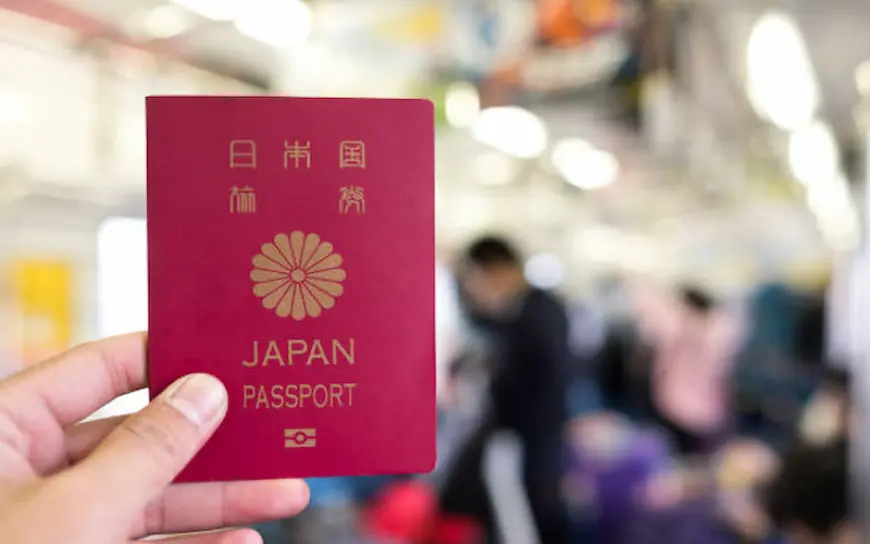10 Things to Know Before Japan Visa Application
Apply for your Japan Visa with ease! Get all the details on requirements, process, and documents for a smooth and hassle-free trip to Japan.

A journey to Japan is a thrilling activity with the dreams of colorful cherry blossoms, old temples, and high-tech cities in mind. However, you will have to go through one important process to allow you to enjoy sushi in Tokyo or to visit the historical districts of Kyoto, and that is, the Japan visa application process. Knowing the ins and outs of applying to a visa and the process you should expect can make your journey an easier and more gratifying experience.
Depending on whether you want to visit Japan on a tour, business, or to visit family, the process of applying for a Japanese visa entails a number of very crucial steps which one should observe keenly. Whether it is documentation or timelines, every factor is crucial to make sure that your visa will not be delayed. This guide will provide the 10 most important aspects to take in consideration before applying to obtain the Japan visa, so that you are prepared and confident throughout the whole process.
Here are the 10 Things to Know Before Japan Visa Application
1. Learn the Kind of Visa You Require
Japan has many different types of visas depending on the reason you want to visit the country - tourist, business, transit and work visa. Before you commence your Japan visa application process, you need to identify the right category that would be appropriate to the purpose of your travel. To illustrate, the tourist visa can only last a maximum of 90 days whereas the business visa may demand some other documents such as invitation letter. This may lead to delays or even rejections in case of using wrong category. Therefore, make sure to visit the Japanese embassy website or contact a travel specialist who will help you to align your application with the right type of visa.
2. Know Where to Use
Most countries are not allowed to apply online visa in Japan. Depending on what country you are in, you will have to either apply physically or under an accredited travel agency or a visa processing center. The process of application of Japan visa also varies marginally according to the nationality, thus it is important to reach the Japanese consulate or embassy in the country. To give an example, in Dubai, the candidates have to address the Consulate-General of Japan in Dubai or the licensed agencies. Make sure you verify the most current requirements on the official embassy web site before sending off your papers.
3. Fill in the Application Form with Care
When filling out your Japan visa application form accuracy is very important. Any mismatch in your name, passport number, travelling dates or any other of your personal information can cause rejection. Fill your application with no errors, and neatly handwritten or typed, and corresponding with what you have in your passport and supporting documents. Don not forget to enclose a full-face, passport size photograph that complies with Japan specific photo requirements, recent, colored, and plain background.
4. Make all the necessary documents ready.
The documents that you present are very important to the success of your visa. Usually, Japan visa application entails:
- an authentic passport containing two blank pages
- An application form of visa which is filled out
- New passport-size picture
- A confirmed travel schedule or airplane reservations
- Accommodation (hotel reservations)
- Bank statements of the past 3-6 months
- Employment letter/ no objection certificate (NOC)
Other such visas as business or sponsored visa will be needed to bring additional paperwork such as a letter of invitation by a host in Japan.
5. There Must be Proof of Financial Stability
The immigration authorities in Japan are keen to ensure that you are in a position to sustain yourself when you visit them. That is why your latest bank statements are the crucial feature in the process of Japan visa application. Good bank balance not only proves that you will be able to pay your travel costs, but also indicates that you are willing to go back to your home country. Your account is, preferably, expected to show a steady financial record, regular deposits, and an adequate balance throughout your stay.
6. Be clear on the Itinerary
Your travel plan should be precise and elaborate, as it gives weight to your application. It is your scheduled means of travel in and out of Japan, where you will stay, places of interest that you plan to visit. Although you do not have to have everything fixed in terms of booking, a solid travel plan shows how serious and organized you are. When staying longer, it is advisable that in some cases, you can have a local sponsor or guide in Japan as it will enhance any itinerary you have.
7. Time and Costs of Processing Differ
The average processing times of Japan visas are 3-7 days of working, which may change according to the embassy, season, or number of applications. Visa also has a different price and it varies depending on the type of visa you are taking and the nationality. As a rule, before applying, it is necessary to clarify the existing fees on the official website or at the agency. Include a certain margin in case you are asked to provide more documents or in case the processing is delayed because of some unexpected circumstances.
8. Travel insurance can be necessary
Travel insurance is not a mandatory thing, but highly recommended when making a Japan visa application. In other instances, particularly after the COVID-19, embassies might require a document proving a reasonably priced insurer that would cover medical emergencies, hospitalization, and trip cancellation. Being fully insured will also give you the ease of mind when traveling abroad to a country with expensive services.
9. Rejected Visa will not be Refunded
Another lesson to keep in mind regarding the process of applying Japan visa is that the fee is non-refundable even when your application is rejected. This is why it is of essential importance to make sure that you provide all paperwork in a right manner, and your application is up to standards. The process of rejection will require you to wait a few months before you make another application. That is why, it is better to collaborate with a famous agency or to address skilled consultants in case you are not sure what to do.
10. Know About new Restrictions or Changes
The visa policies in Japan can be altered because of international affairs, diplomacy, or medical disasters. As an example, during the pandemic, Japan did not allow entry and suspended visas on a temporary basis. Visit the Ministry of Foreign Affairs (MOFA) official site or pages of the embassy regularly to be aware of any new changes. It is also better to get acquainted with the entry requirements such as COVID-19 tests, vaccination certificates, etc., in case they are still in force.
Conclusion
The process of applying for a Japan visa can be an uphill task but with due preparation and details, it can prove a breeze. Being well versed with the Japan visa application process would mean that you will have covered every requirement and chances of delays or rejections are minimal. It is an important step to select the right type of visa, and it is an important step to present a necessary set of documents.
Going to Japan on vacation, on business or to see relatives is one thing, but being prepared and on top of things is a whole different ball game. Begin as soon as possible, go through your documents twice, and monitor any alterations in visa regulations. Planned correctly, the Japan visa application process may become your initial successful step on the way to the unforgettable adventure in the Land of the Rising Sun.
What's Your Reaction?
 Like
0
Like
0
 Dislike
0
Dislike
0
 Love
0
Love
0
 Funny
0
Funny
0
 Angry
0
Angry
0
 Sad
0
Sad
0
 Wow
0
Wow
0



















































